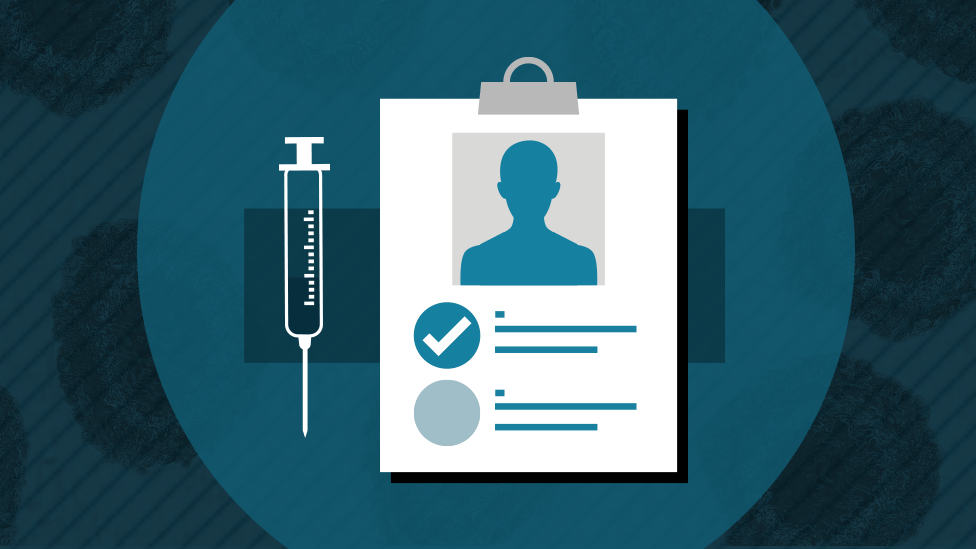Lockdown easing: Scientists tell us what they will (and won't) be doing
- Published
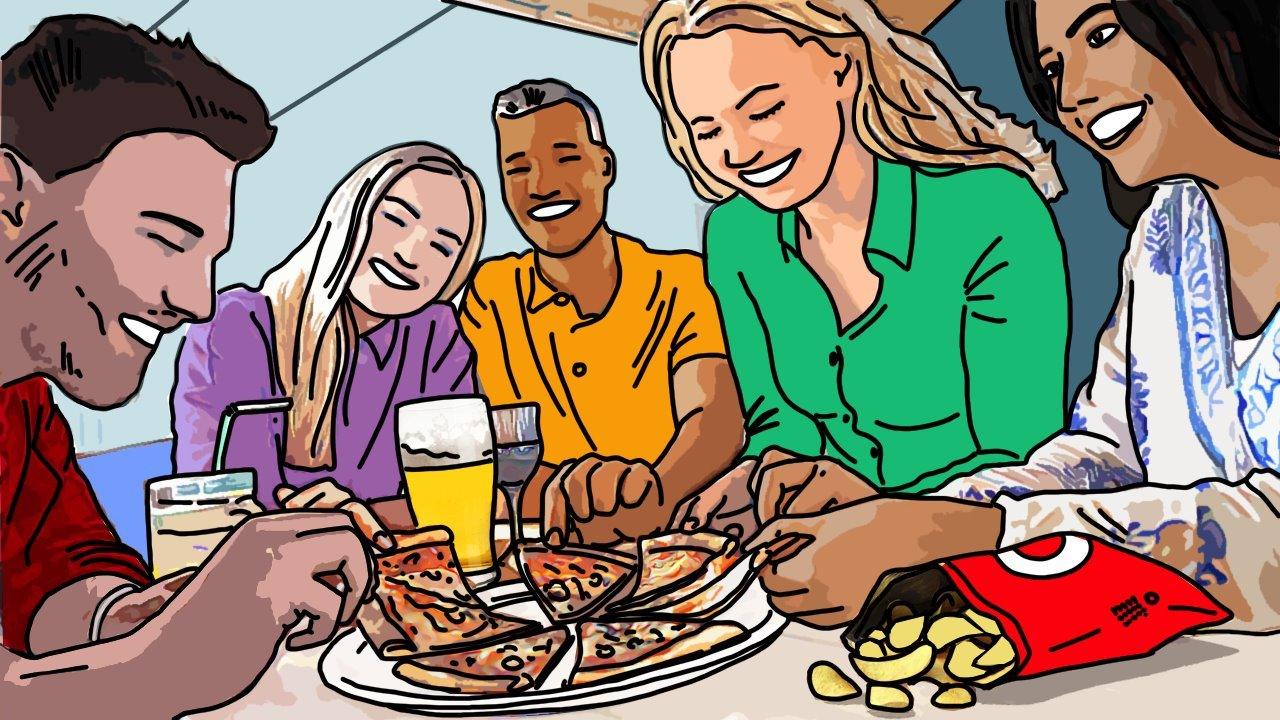
Many of us can't wait to get back inside a pub, on a plane, or catch a film at the cinema. Whether or not the Indian variant of Covid proves a serious threat to further lockdown easing, for some there is still that nagging thought: is it safe?
From Monday, pubs, cafes and restaurants in many parts of the UK will welcome customers back indoors, overnight stays will be allowed and we'll finally be allowed to hug our loved ones.
But how will the professors and health professionals, who have been tracking the pandemic every step of the way, be behaving? We asked five experts what they feel safe doing, what will they be avoiding, and whether they'll be hitting that Monday morning spin class.
Will you go to a pub or restaurant?
While pubs and restaurants will now be able to seat customers indoors, Dr Michael Head, a senior research fellow in global health at the University of Southampton, won't be rushing out. "I probably would stick to the pub garden for the first few weeks at least," he says, adding that he wants first to "see the impact of indoor settings on case rates around the UK".
Melissa Lewis-Brown, chief science strategy officer at Health Data Research UK, says she is planning to keep taking advantage of takeaways and outdoor services, especially as the weather improves. If she does venture indoors, she will be looking for venues that are well ventilated, have good distance between tables, and regularly clean tables.
Noisy places are of particular concern, says Prof Jonathan Reid, a specialist in physical chemistry at the University of Bristol. That's because they require people to speak louder, which in turn can increase the amount of aerosol - airborne particles of saliva - a person generates by a factor of between 20 and 30, he explains, thus increasing the risk of an infected person passing the virus to others.
But what about eating inside a restaurant? "I think inherently restaurants, for me, are something I'd contemplate going to, just because they're a lot more controlled environments," says Prof Reid. He says they tend to have more space between tables and less "to-ing and fro-ing", compared with a pub.
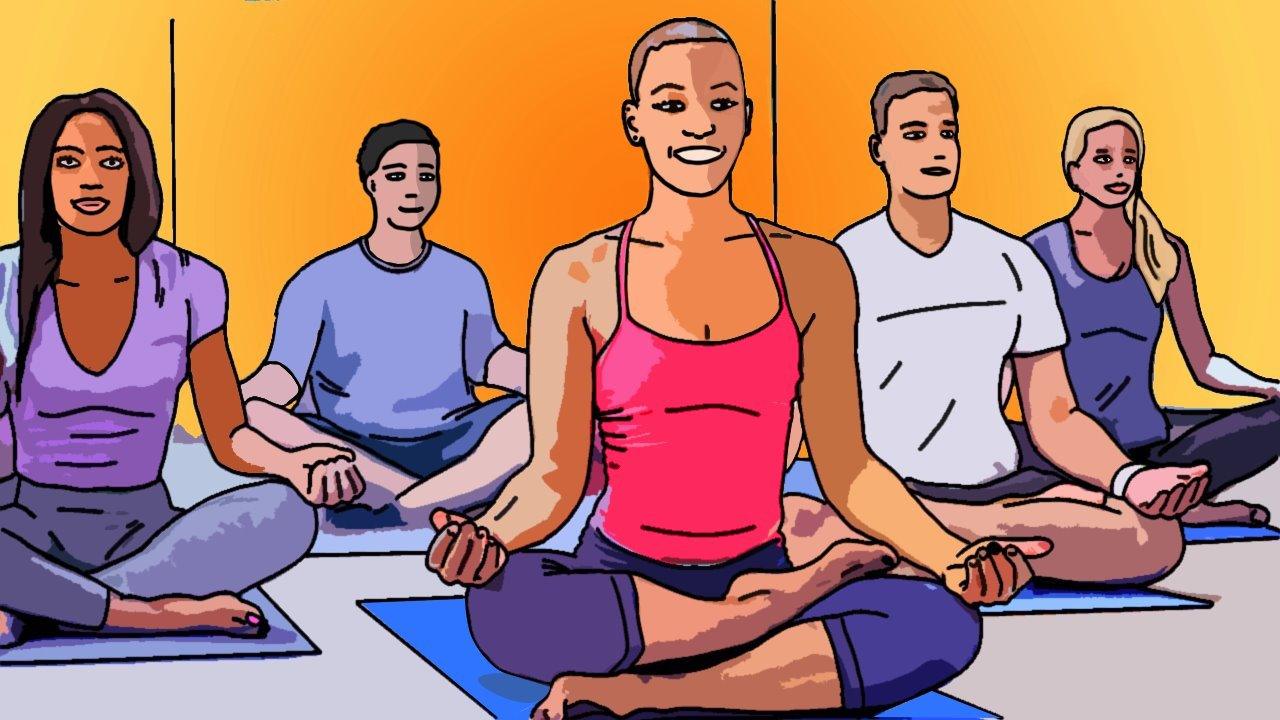
Will you take an indoor exercise class?
When gyms reopened last month, Prof Linda Bauld, an expert in public health at the University of Edinburgh, was among those immediately taking advantage of the changes to the rules.
But while she is "reasonably comfortable" with the reopening of gentler exercise classes indoors, such as yoga, she intends to avoid high-intensity sessions, such as spinning, for the "foreseeable future". She says aerobically strenuous exercise causes people to both exhale and inhale more, potentially increasing the risk of infection.
You breathe in about 10 times more air during heavy exercise than when you're just sitting in a chair breathing normally, says Dr Bryan Bzdek, also from the University of Bristol's School of Chemistry. Doing a spin class is "the last thing I'd want to do right now", he adds.
If you want to do a vigorous exercise classes, it is still safer do it outdoors, the experts advise.
Will you be flying?
Among those who will be willing to travel on a plane is Dr Bzdek. Ventilation on planes is typically "pretty good", he says, and passengers are required to wear masks. But any international travel will be for "really important purposes", such as seeing his family, who live in the US.
However, Prof Bauld says while she will consider taking a domestic flight, she wants to see the protocols for international travel further developed before she considers travelling abroad. She says in previous stages of the pandemic the importation of cases had been a big issue in Scotland, where she is based. "From a public health perspective, I think that's a weak link."
For Dr Head, the additional rules around travel, such as quarantining, make the prospect of a flight less appealing than normal. "It sounds to me a slightly stressful experience," he says, adding that he is "certainly not planning to fly anywhere soon".
Those close family ties are really important and that's something I want to prioritise above other things
Will you stay with a loved one?
For Prof Reid, staying with his parents will be a "high priority", having not seen his parents since October last year. From Monday, six people or two households can meet indoors in England, with overnight stays allowed.
"Those close family ties are really important and that's something I want to prioritise above other things." But he says he will take precautions, such as sitting in the garden as much as possible, keeping windows open and avoiding joint car journeys - and importantly taking a lateral flow test before visiting. "Try to mitigate the risk as much as you can," he says.
Prof Bauld says she has been looking forward to visiting her aunt and uncle, but is not intending to stay overnight "unless it's really necessary".
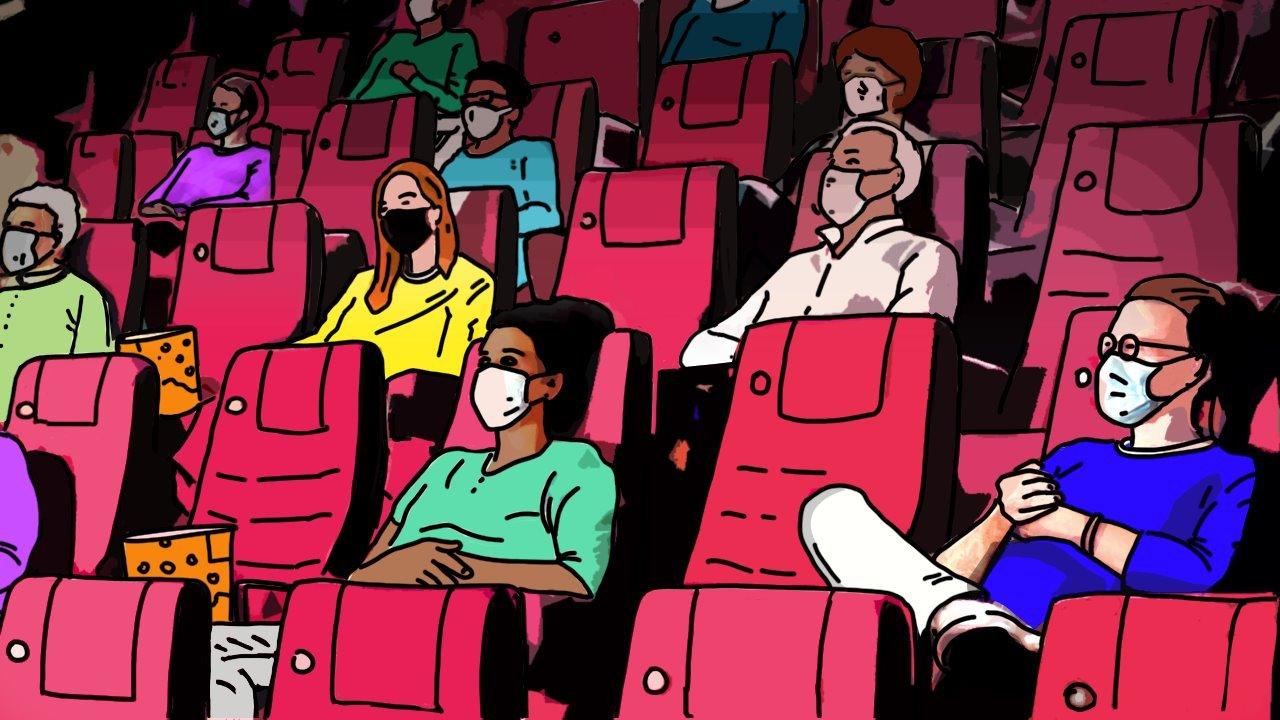
Will you go to the cinema?
Many of us will be thrilled at the prospect of a return to the silver screen, with cinemas having been closed for months. But the experts we spoke to were cautious about entering indoor cinemas, or other indoor entertainment.
Like most hospitality venues, people sit relatively closely to each other in enclosed spaces for long periods. But one advantage is cinemas do have lots of space.
Cinema screens are often large rooms with plenty of air to dilute the particles people are emitting, says Dr Bzdek. He says he will probably be more comfortable going in mid-June, by which point he expects to have received his second vaccination.
Meanwhile, Prof Bauld says she will be "cautious" about attending cinemas for the time being because they are enclosed spaces. "But if it's well-managed, if there's distancing, and of course people are wearing face coverings, then that's fair enough," she says, adding that she won't be dissuading family members from going.
I think close physical contact, where you're exhaling with others not from the same household, is something that is going to take us a little bit longer to get back to doing
Will you hug friends and family?
There are few coronavirus measures as personal as whether we can hug our friends and family. So it was the news many were hoping for when Prime Minister Boris Johnson confirmed that advice against hugging people from outside our households would be dropped in England from Monday.
For Prof Bauld, it's not something she plans to do for the foreseeable future - particularly with older and more vulnerable family members. "I think close physical contact, where you're exhaling with others not from the same household, is something that is going to take us a little bit longer to get back to doing more regularly."
Dr Bzdek says he was planning to limit hugging to his family and closest friends. But he will keep in mind risk factors, such as age, whether a person was fully vaccinated, and whether their immune system was compromised, thereby making them potentially more susceptible to infection.
What about the future?
The prevailing view among the scientists we spoke to was that they would wait to see how the pandemic developed over the next couple of months, including monitoring data on infection and vaccination levels and whether any coronavirus variants of concern were becoming more dominant. Dr Head says he will be looking at "data rather than dates".
And the good news is the warmer months ahead should make it easier to be outdoors, where there is little risk of transmission. "If it's something I want to do and it's outdoors I have very little concern," says Prof Reid. "Being outdoors is a very safe place to be."
Clarification 1 June 2021: We have amended this article to describe the contributors as scientists.


LOCKDOWN RULES: What's changing and when?
SOCIAL DISTANCING: What's the new guidance on hugging?
GLOBAL SPREAD: How many worldwide cases are there?
VACCINE: When will I get the jab?
NEW VARIANTS: How worried should we be?

- Published26 January 2022
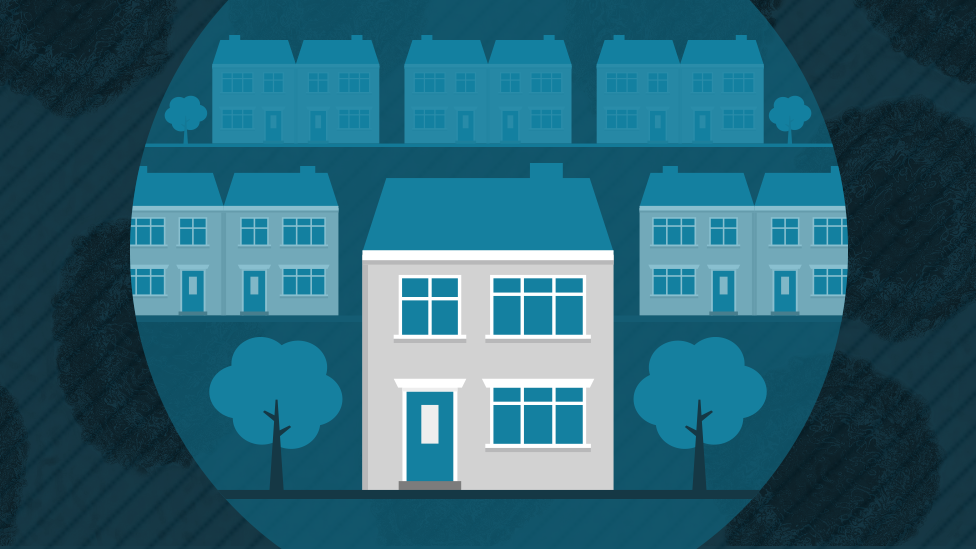
- Published1 July 2022

- Published28 February 2022
